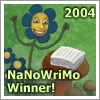|
Tuesday, January 27, 2015
Hershey’s Spat with UK ImportsThere are a lot of people legitimately upset that they’re not going to be able to buy some candy that they like. Hershey’s, which holds the exclusive rights to KitKat, Cadbury and Rolo in the United States, defended their trademark against LBB Imports (based in NJ) and Posh Nosh (based in CA) who were bringing in the UK versions of those bars. KitKat and Rolo are made by Nestle and Cadbury is now owned by Kraft/Mondelez. The importers have now agreed to stop selling those products in the US. The items under contention include: Fans of their favorite candy bars are vowing to #BoycottHershey. But it’s clear that they preferred something else before, that they were eschewing the US version of Cadbury chocolate for the UK version, so the threat is a little hollow. (Here’s my comparison of the two chocolates.) The thing about trademark is that it has to be defended in order to be maintained. Unlike copyright, which you can selectively choose to defend, but it still applies, all trademark violations must be defended in order for the trademark to remain valid. Otherwise another company can point to a small infraction that the trademark holder ignored and say “why was that okay and this isn’t?” And Hershey’s did pretty much look the other way with the novelty flavor KitKat bars from around the world, even though they sell KitKat here in the United States. Hershey’s successfully defended itself against a company in Colorado that was making marijuana-enhanced confections with novelty names similar to existing candy bars. In that case it could be that not only would Hershey’s be harmed by the perceived association with marijuana but also any instance of a child or less-than-sharp adult ingesting the candy might make Hershey’s culpable. It’s easy to make fun of it, if you look at the labels and say “no one would mistake those,” but it happens, I’ve grabbed the wrong candy bar at the store ... and I’m a candy blogger! So, in order to win those cases, Hershey’s has to show that it has not abandoned its trademarks by defending them in all cases that come to its attention. But Hershey’s is taking a pretty broad brush to this, and as I’ve pointed out before with their Malteser/Maltesers issue, I think some of it is pretty slimy. Hershey’s has a clearly defined deal with Kraft/Mondelez to be the exclusive maker and seller of Cadbury in the United States. I think some of that is ignored for specialty items that have no like product. I see the Cadbury Roses at some import shops, which is probably against that deal, but does Hershey’s no harm because it doesn’t poach any existing sales of Hershey’s-made chocolate roses ... because Hershey’s doesn’t make any chocolate roses. But Hershey’s does sell Cadbury Creme Eggs. And for the record, the chocolate on the American Cadbury Creme eggs has no vegetable oil fillers in it. The UK version does (or did, I haven’t seen the new one). Hershey’s also has a long-standing contract with Nestle (the deal was made with Rowntree-Mackintosh back in 1969 for Rolo and KitKat in 1970) to exclusively make the candy in the United States. It’s easy to get all up in arms about Hershey’s and their lack of quality or decline in quality and then say that the stuff that they’re preventing from being imported is better. Honestly, I’ve had most of it and it’s all marginally decent stuff. The UK tends to use more cacao in their milk chocolate but then they allow up to 5% vegetable oil and sometimes whey. American milk chocolate often uses less cacao but all cocoa butter with no extra whey fillers. Some of Hershey’s items do use mockolate, but in the list of items under contention, they’re all real chocolate items. Do any taste great? That’s up to you. But calling Hershey’s mockokate when Cadbury’s also qualifies for the same moniker, well, that’s just silly. It’s not silly to miss your favorite candy bar. All these confectionery giants need to realize it’s a global economy and they can no longer keep the rest of the world out. America is not an island and if Hershey wants to be a world player in confectionery, it needs to play a internationally-focused branding game. Yorkie and the York Peppermint Pattie are completely different products and no one will confuse them. The KitKat bars, well, that’s a sticky wicket that should be worked out between Hershey’s and Nestle. The Mars Malteser and Hershey’s Maltesers problem is pretty thorny as well. Consumers are caught in the middle. And there’s not likely to be a resolution until we have one global candy company ... which isn’t something I wish for. So, in the mean time, just go back to candy swaps. So, do I hate Hershey’s for their behavior? No (except for the Maltesers thing.) Will I miss those import products? Probably not. No offense, none of them were that good, but this is coming from someone who didn’t grow up with them. I understand that there’s a difference between good and comforting and comforting can be just as good as good. Do I think the marketplace should be opened up? Yes, but that’s a far bigger problem than just a few competing candy bars and 50 year old licensing agreements. POSTED BY Cybele AT 5:51 pm Curious News • 
|
||
ABOUTCATEGORIESCONTACT
ARCHIVES
|
During November it's all about me writing a novel. Sometimes it's about whalewatching. You know, and then there's other stuff.
|




Trackback URL: http://www.typetive.com/trackback4763